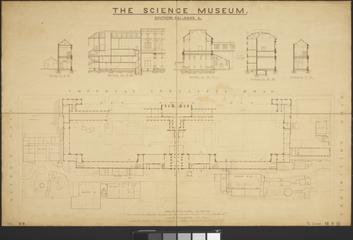
Oral history interview with Maurice Peacock conducted and recorded by Jo Bath in 2004, as part of the Time Tracks oral history collecting initiative. Duration: 1 hour 15 minutes. Born 1917 in Shildon. Childhood; moved to Middlesbrough (1921), Middlesbrough High School; Shildon streets; father a coal miner (Dabble Duck Mine, Shildon), father moved to ICI Billingham; leaving school pre-exams to be an errand boy, brothers on dole, took exams, errand boy, shop manager; [00:03:10] joining Rochdale Police Force (1939); 9 years in Rochdale, periods in army and air force, married 1941, dislike of police work; [00:04:00] further career; ; return to Middlesbrough; general dealer’s shop (4-5 years), fish and chip shop, burnt out after one week, new equipment within a week, commercial traveller until retirement; [00:06:40] childhood, Growing up; father’s work as miner, coal seam under house, brothers farm workers, railway routes near Shildon, no family members became miners; [00:12:40] play location and games as a child in Shildon, goods yard play, friends, Timothy Hackworth School; [00:19:10] Shildon railway works, wagon works; [00:20:00] food in childhood, porridge; [00:21:10] Shildon area; leisure and activities in Shildon, Soho Shed used by band, museum visit, Sunday School, brass band visits, church on Sundays, played during week, groceries paid once a week, lot of shops, wet fish shop, played in recreation ground, lot of railway lines; [00:28:40] family life; first girlfriend 1937, married 1939, widowhood 1998, memories of wife, grandchildren, great grandchildren; [00:31:20] 1926 General Strike, the Great Depression; father and brothers out of work, reduction in amount of food, family memories, what people did during general strike, deaths of young siblings; [00:35:00] Shildon railway works visit, no desire to work in works; [00:36:10] interest in police work, Shildon policeman; [00:38:00] childhood, clothing, coal deliveries, coal house outside, toilets, wash house, washday, father’s miner’s clothes, watching the carnival, bicycle use, grocery deliveries, hand cart use; [00:46:10] agricultural show; showground, rabbits, pigeons; [00:47:30] extreme weather, winter, igloo building; [00:49:40] dinners during General Strike; Salvation Army, soup; [00:51:30] mines around Shildon; lots of pits; [00:52:20] electrified railway; few memories; [00:53:50] cinema, went now and then, “flea pit", not enjoyable, piano played pre-organ, first picture with talk seen in Middlesborough; [00:56:50] social classes in childhood, no issues, no bullying in school; [00:58:00] shoes in childhood; [00:59:00] food, always fresh food in house; [00:01:10] remedies, drugs, medication in childhood, cod liver oil; [01:02:40] favourite things to do; playing out, details, punishment if mis-behaved; [01:04:50] proggy mat making, helping mother; [01:07:10] tricks on neighbours; doorknob tying; [01:08:00] street play; hoop rolling, marbles; [01:10:20] family support; relationship with brothers, sisters, sister’s work; [01:12:40] Army service; visit to London to see sister, army work in a US army camp [01:15:09] [end of interview]
Time Tracks, Shildon Railway Village Community Project was an initiative funded by the National Lottery Heritage Fund that encouraged members of the public to bring photographs and documents at Locomotion to form a community archive, when Locomotion museum was opened in Shildon, 2004. Over 50 oral history interviews were also recorded with members of the community. They shared their memories of Shildon as they knew it in their childhood and throughout their lives, from as early as the 1920s, as well as their work experiences in local factories and industries, including Shildon railway works.
Details
- Category:
- Corporate Archive
- Object Number:
- 2023-1064
- Materials:
- metal (unknown) and plastic (unidentified)
- type:
- minidisc